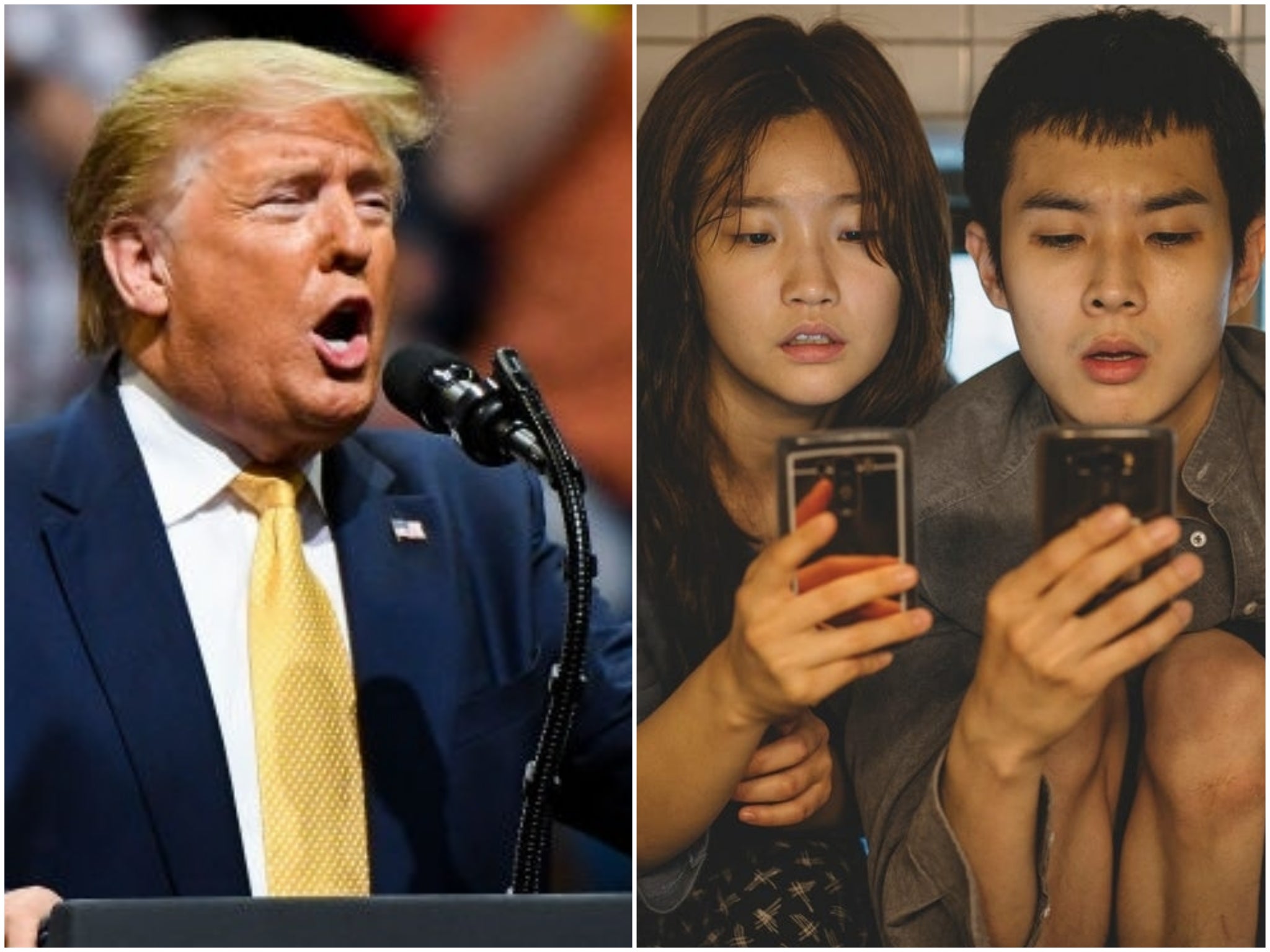The G20 needs to ignore Trump and take lessons from films like Parasite to help reduce social inequality
Instances of inequality are on the rise globally and it is time to taker action, writes Phil Thornton


We will never know whether the other finance ministers from the Group of 20 rich nations congratulated their South Korean counterpart for his country’s film Parasite, the scathing indictment of economic inequality that become the first foreign language picture to win Best Picture at the Oscars.
In Riyadh, the Saudi Arabian city hosting the G20 finance ministers’ meeting that took place over the weekend, the Saudis were keen to use the forum to impress upon their guests how they plan to modernise their economy by privatising state-run firms, and embarking on a strategy focused on defence and manufacturing equipment, renewables and chemicals to help it cut its dependence on oil exports. Doubtless they were too polite to raise its record on human rights.
But the issues of economic inequality – and the threat of social unrest if it is not tackled – were never far from the dinner table at the two-day meeting.
The International Monetary Fund (IMF) included in the regular surveillance note it produces for each G20 meeting, a revealing graph showing that the number of social unrest “events” is at its highest level since statisticians started to count them.
To put it in perspective the total of almost 1,800 events in 2018 was getting on for double the number of 2011, the year of the Arab Spring protests that were broadcast onto TV screens around the world.
Unsurprisingly three quarters took place in emerging economies or developing countries with around a fifth taking place in the world’s poorest countries. As the IMF put it in typically technical and understated language: “Social unrest, including in non-G20 economies such as Chile, Lebanon, Iraq, and Hong Kong, has contributed to a reassessment of their economic prospects.”
This reassessment is econo-speak for the fear among the established powers that the mass ranks of the under-privileged will rise up after years of collective failure to ensure they have access to work and a basic standard of living.
The G20 could take baby steps towards alleviating this by blocking already wealthy corporations and individuals from exploiting tax loopholes to ensure less of their money goes towards funding public services and other measures to help the poorest.
Angel Gurria, the Secretary General of the Organisation for Economic Cooperation and Development (OECD), called on ministers to focus on creating and strengthening rules around the taxation of digital transactions, debt transparency, and corporate base erosion and profit sharing rules for the mutual benefit of all countries.
It is important to remember what these mean. Profit sharing rules would ensure companies paid taxes where they do business. Tackling base erosion would set a minimum corporate tax rate and stopping companies hiding in zero-rated jurisdictions.
If digital transactions were equitably taxed, then developing countries could collect all the corporate tax revenue they are entitled to. According to Oxfam International, developing countries lose an estimated $100bn (£77bn) a year in tax revenues as a result of tax avoidance by multinational corporations.
Sadly, some of the rich countries are pushing back, with the United States wanting profit sharing to be discretionary and threatening to use tariffs against measures that target its digital giants. Members of the EU, which had a seat at the table in Riyadh, such as Ireland, Poland and Belgium are pushing hard to water down the base erosion moves.
In the end, the can was effortlessly kicked down the road. Perhaps that was inevitable given the continuing spread of the coronavirus even as ministers and central bankers were meeting. The IMF weighed in with a warning that at best it now expects China’s economy to grow by 5.6 per cent this year rather than then 6 per cent forecast just a month ago, because of the impact of coronavirus.
For good measure, it added that it was looking at “more dire scenarios where the spread of the virus continues for longer and more globally, and the growth consequences are more protracted”.
In the end its communique acknowledged that an “inclusive” approach to growth could better harness untapped economic potential, help address inequality and empower all segments of society, especially women and youth.
And the policy response? “Therefore, we agree to develop a menu of policy options that countries can draw from to enhance access to opportunities for all.”
Perhaps this is best summarised via a “call and response”. “What do we want?” “To address inequality.” “When do we want it? “Not sure, but we’ll draw up a menu.” Probably not as appetising a menu for the poor as the one enjoyed by ministers and bankers on Saturday evening.
For the parasites of the world, the underclass living hand to mouth as portrayed in the film, nothing has changed. But then given Donald Trump’s condemnation of its Oscars win that should come as little surprise.
Join our commenting forum
Join thought-provoking conversations, follow other Independent readers and see their replies
Comments